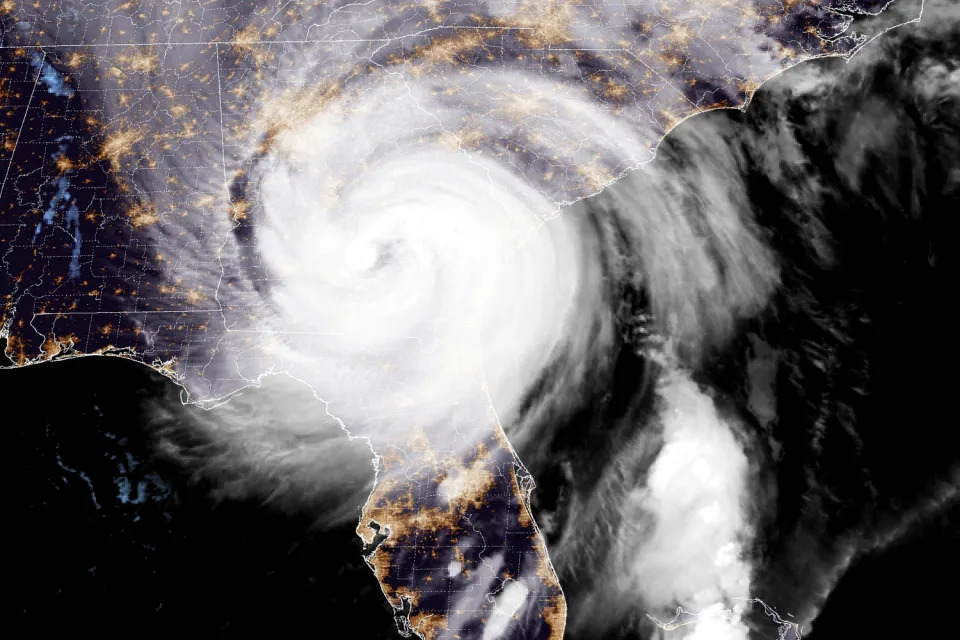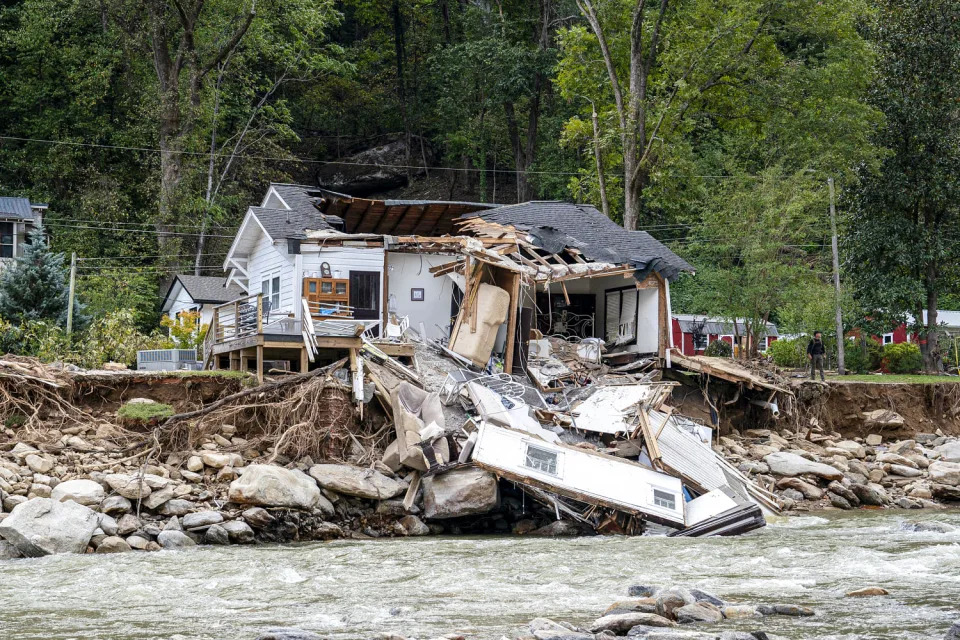As Hurricane Milton barrels toward Florida’s west coast, a new report estimates how much more intense Hurricane Helene’s winds and rain were because of climate change. The scientists behind the research said that they expect Milton to behave similarly and that it is likely to be worse because of climate change, as well.
The report, published at midnight Wednesday, comes from the World Weather Attribution group, a consortium of scientists that analyzes extreme weather and is considered a foremost authority in determining how much climate change has influenced a particular event.
The findings indicate that Hurricane Helene’s wind speeds were 11% more intense and its rainfall totals were about 10% higher because of climate change.
“We have all the full body of research now that shows this very clear connection” between climate change and hurricane intensity, said Friederike Otto, a climate scientist at Imperial College London, who contributed to the new research. “The biggest danger is not to make the connection to climate change.”
Like Hurricane Helene, Hurricane Milton is traveling over a record-hot ocean: Sea surface temperatures in the Gulf of Mexico are far higher than usual, even for this time of year. Warm water acts as fuel for such storms, helping them intensify more quickly.
Both hurricanes have undergone a process known as rapid intensification, in which a hurricane’s sustained wind speeds increase by at least 35 mph over 24 hours. The trend has become more common because of climate change.
The sea surface temperatures that propelled Helene and Milton were 200 to 500 times more likely because of climate change, the report found.
Hurricane Helene makes landfall in northern Florida
On Monday, Milton strengthened into one of the five strongest hurricanes ever recorded, experiencing a dramatic pressure drop within its core.
“It’s absolutely explosive with this storm,” said Bernadette Woods Placky, the chief meteorologist for the nonprofit research group Climate Central and a co-author of the new report.
The researchers combined statistical analysis with detailed weather modeling and found that hurricanes as intense as Helene are about 2.5 times more likely because of climate change and the fossil fuel pollution that causes it.
It is the third and most extensive preliminary report linking climate change to the intense rain that killed more than 200 people after Hurricane Helene made landfall on Sept. 26 along Florida’s Big Bend region.
World Weather Attribution scientists studied rainfall rates for two days along Florida’s coast, where Helene first struck, and assessed three-day rainfall rates in the mountains of six nearby states, including North Carolina and Tennessee.
They found that coastal rainfall totals that high were 40% more likely because of climate change and that inland totals that high were 70% more likely because of climate change.
Helene inundated parts of southern Appalachia with more than 2 feet of rain. Floodwaters carried away houses, washed out highways and cut off access to towns. Much of the recovery work is just beginning.
Damaged structures in downtown Chimney Rock, N.C., after the passage of Hurricane Helene on Oct. 2.
The World Weather Attribution group is a loose coalition of scientists who publish rapid findings about extreme whether and how climate change influenced particular events. The new analysis involved 21 researchers. Although the group uses peer-reviewed methods, its work is published in advance of a traditional peer review, when the events are fresh and particularly newsworthy. Previous World Weather Attribution work has withstood further scrutiny from outside scientists and been published in major scientific journals.
The new results align with the two previous analyses of climate change’s influence on Hurricane Helene, Otto said, though each report produced different numbers because the various researchers defined the parameters of their studies differently and looked at different geographies.
World Weather Attribution scientists plan to run the numbers again on Milton and produce a new report.
This article was originally published on NBCNews.com

 German (DE)
German (DE)  English (US)
English (US)  Spanish (ES)
Spanish (ES)  French (FR)
French (FR)  Hindi (IN)
Hindi (IN)  Italian (IT)
Italian (IT)  Russian (RU)
Russian (RU)  16 hours ago
16 hours ago

























Comments